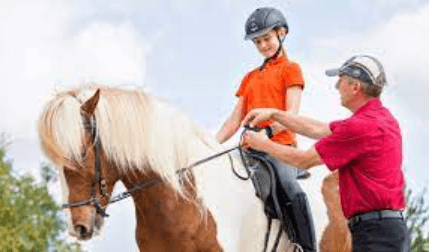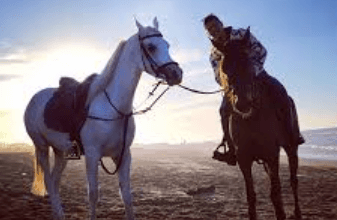Peak Performance: Preparing Eventing Horses for Each Phase

Introduction
Eventing, known as the equestrian triathlon, is a sport that tests the versatility, stamina, and skill of both horse and rider through its three distinct phases: dressage, cross-country, and show jumping. Preparing a horse for each of these phases is a meticulous and strategic process, crucial for success and the well-being of the horse. This article explores the comprehensive training and preparation techniques employed for eventing horses in each phase.
Preparing for the Dressage Phase
- Foundation Training: The dressage phase requires precision, flexibility, and obedience. Training focuses on developing a responsive and supple horse, capable of performing intricate movements with ease.
- Routine and Consistency: Regular dressage sessions are essential, gradually increasing in complexity. Consistent work on transitions, lateral movements, and collection builds the horse’s strength and responsiveness.
- Mental Preparation: Dressage demands mental focus from the horse. Desensitization exercises and exposure to different environments help in building confidence.
Preparing for the Cross-Country Phase
- Endurance and Stamina: The cross-country phase requires a high level of cardiovascular fitness. Interval training, hill work, and long, slow distance rides are key components of preparation.
- Jumping Technique: Training involves schooling over a variety of cross-country obstacles to develop the horse’s jumping technique, agility, and confidence.
- Conditioning: Proper conditioning of the horse’s muscles, tendons, and ligaments is crucial to withstand the physical demands of cross-country and reduce the risk of injury.
Preparing for the Show Jumping Phase
- Jumping Skills: Focused training on show jumping techniques is essential. This includes practicing combinations, tight turns, and varying fence heights and types.
- Agility and Responsiveness: Exercises that improve agility, balance, and responsiveness help the horse in navigating show jumping courses effectively.
- Recovery and Maintenance: After the rigorous cross-country phase, ensuring the horse’s recovery and maintaining its condition are critical for show jumping.
Overall Physical and Mental Well-being
- Nutrition and Healthcare: A well-balanced diet, regular veterinary check-ups, and proper hoof care are fundamental in keeping an eventing horse healthy and fit.
- Mental Health: Mental well-being is as important as physical fitness. Varied training routines, adequate rest, and positive reinforcement help in maintaining a happy and motivated horse.
The Role of the Rider
- Understanding and Communication: The rider’s ability to understand and communicate effectively with their horse is crucial. Building a strong bond and trust enhances performance in all phases.
- Rider Fitness: The rider’s physical fitness, especially core strength and balance, plays a significant role in the effective training and handling of the horse.
FAQs
- Q1: How long does it take to prepare a horse for an eventing competition?
- A1: The preparation time can vary but typically involves months of consistent training. The duration depends on the horse’s existing fitness level, experience, and the level of competition.
- Q2: Are there differences in preparation techniques for younger versus older horses?
- A2: Yes, younger horses require more gradual training to build their strength and confidence, while older, more experienced horses might need more maintenance work and focus on specific skills.
- Q3: How do weather and terrain affect preparation?
- A3: Weather and terrain play significant roles in training. Riders adjust their training routines to acclimate horses to different weather conditions and terrain types they might encounter in competitions.
Conclusion
Preparing an eventing horse for each phase of the competition is a comprehensive process that encompasses physical training, mental conditioning, and overall well-being. The key to success lies in a well-rounded and strategic approach that caters to the unique demands of dressage, cross-country, and show jumping. Through meticulous preparation, riders can help their horses reach their full potential, ensuring both safety and competitive excellence in the challenging sport of eventing.




